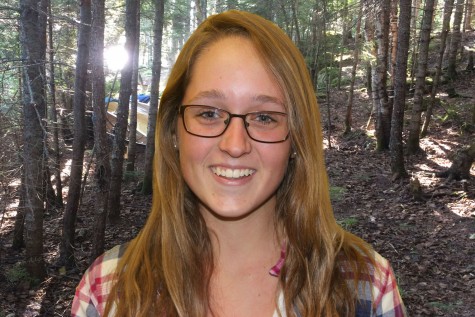Davis has hope for the future
North high student wants to put an end to racial stereotyping
September 26, 2014
Omaha, Nebraska. Most of us know it as home. Across the country it is known as the home of the College World Series, Olympic Swim Trials, and even a few restaurants featured on Food Network.
In 2011, reports from the Violence Policy Center, a Washington D.C.-based research and advocacy center, show that Nebraska has a black homicide rate of 34.4 deaths per 100,000 people. This is twice the national average.
From this Omaha gains a new image. It becomes a city that is only the 42nd largest city in the country yet has a higher black homicide rate per capita than Detroit and Chicago.
Omaha can now be known as the city that is the most dangerous place to be black in all of America.
“Chicago is insane. If Omaha is worse, that’s just crazy,” said Tiger Davis, senior at Omaha North, “It’s a problem. It’s a national problem.”
In Nebraska, a black male is eight times more likely to be murdered than any other American. In 2011, 27 of the 30 black homicides in Nebraska happened in Omaha.
“It’s the environment that we’re in. People think in this state of mind where this isn’t a big deal and it gets passed on through generations,” Davis said.
Growing up in Compton, California, Davis lived in a neighborhood diverse with blacks and Latinos. From this experience he has realized that people have a first impression of him and other black youth that is not always accurate.
Davis likes to ask people what they first thought of him and he usually gets that they thought he fought a lot and was not a good kid. His friends are often sorry that they judged him because they find out he is not like that at all.
Even though Davis does not let this affect him too much, he still has strong opinions on racial profiling.
“I see us all as human beings. We’re all the same,” Davis said.
The “one bad apple spoils the bunch” saying does not ring true for Davis. He believes that just because one person of a group does something does not mean it influences everyone in that group to follow suit.
Since the foundation of this country there has been discrimination against black people, but Davis wants to end this cycle.
“This doesn’t give us [the African American youth] the right to act ignorant. No one owes us anything,” Davis said, “We fought for these rights, so why not use them?”
He also believes that now is the time to stop the stereotypes.
“It’s up to us as youth to fix [the problems] and the adults to motivate us,” Davis said, “The youth is our future. We can’t have them going downhill…I have hope.”
One way Davis wants to help turn things around is to study art and photography and to teach kids through internships who have the will to learn about this field.
“If I could tell kids one thing it would be to take advantage of the education. Public or private, if it’s given to you use it,” Davis said, “It will lead you to better things.”
